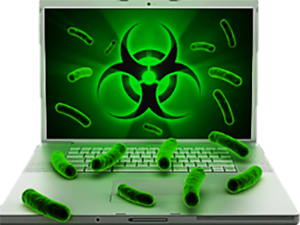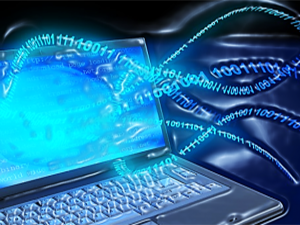 |
 |
Analysis
Virus Removal is an active service required by most users. Viruses are an ever-growing threat in today’s technological society. There are countless scams and Trojan viruses that can pose a threat to any CPU. It is important to recognize these threats early and remove them before they can do any real harm to your computer or – worse! – to your personal information. Below we will explain the ways to identify these viruses, the harms they can actually cause to your CPU or personal information, and why you should trust Houston PC’s virus removal services.
Different Kinds of Viruses/Malware
- Adware: Adware is one of the most common types of viruses out on the market today. It specifically targets a person’s interest for obscure commodities and trinkets. In and of itself, adware is not harmful to personal data and presents no risk of identity theft. However, it does contribute to slow computer speeds and potential registry errors. (Registry errors lead to corrupted files, broken applications, and a failure of your operating system to boot properly.) Adware virus removal is a very simple process. Don’t let this linger too long as the side effects could pose more problems down the line.
- Ransomware: As its very name implies, ransomware is one of the most harmful viruses you can acquire on your computer. It is capable of holding your files or your entire computer itself “hostage.” If you ever encounter a virus of this magnitude, your first action should be to call Houston PC Services. **IMPORTANT INFORMATION** Ransomware is created by tech-savvy thieves and hackers. Never seek these criminals out or pay the “ransom” they demand. Nothing is assured if the ransom is actually paid. Moreover, when performing a virus removal of ransomware, a sure case can never be made for recovering data from a corrupted computer. In some cases, ransomware has been known to completely shred and corrupt every single file stored on an infected computer. In such cases, even if the ransom is paid, the files have already been lost due to the corruption of the core algorithms stored inside the file. For this reason, Houston PC Services stresses the need for routine backups to avoid catastrophic loss of personal data.
- Rootkits: Remote access – being able to control your computer from an offsite location – is the direct function of a rootkit. Rootkits can infect a CPU, providing the offsite user with direct access to its victim’s files and programs. It can then steal valuable personal information by either executing a program on the CPU or monitoring activity. These mischievious malware programs are designed to work in stealth. All of the common functions of a rootkit are undetectable to an untrained eye. No malware or antivirus programs are readily available on the market to identify them. Manual detection is the key. This may involve monitoring a CPU for irregular activity (such as a kick-up in processor or CPU speed during a dormant state), along with signature scanning and storage dump analysis. If you suspect that your computer may be infected with a rootkit, contact Houston PC Services at once to prevent the potential loss and theft of your data or personal identity.
- Spyware: Similar to rootkits, spyware monitors a computer from a remote location. Spyware will infect a computer, monitor its keystrokes, actively monitor its screens or, in the worst-case scenario, harvest its data. These viruses usually embed themselves within legitimate programs. Once installed, they are capable of breaking through security vulnerabilities. Active malware scans and anti-virus protocols are usually able to detect and remove these viruses.
- Trojan or Trojan Horse: In mythology, the Greeks used a giant wooden horse to invade the city of Troy. A computer Trojan horse works exactly the same way. These malicious programs will disguise themselves as legitimate programs commonly used by users (Adobe products, virus protection software, etc.). Once installed, the hacker has full reign over the user’s computer to install additional malware, steal financial records, modify files or monitor user activity. When you install a program that has a Trojan attached, the Trojan will in turn give it express rights to execute all of its algorithms and code until it is finished. Virus protection software may advise you to turn away from a potentially malicious site or program, but it cannot prevent these programs from being installed. Safe browsing practices are necessary to mitigate the threat of these viruses. Constant monitoring of the websites you visit is recommended. Adequate knowledge of the program being installed – before approving the security exception provided by Windows – is strongly advised.
Common Symptoms of Malware
As explained above, malware comes in various forms and presents a variety of symptoms. Here are some common indications that your computer may be infected with a virus or other malware…
- CPU usage greatly increases (no new programs/features have been added to acount for the increase)
- Files are being lost or modified without explanation
- Constant freezing or lockups
- Appearance of unknown files, programs or shortcuts
- Sent e-mails not from the active user
- Programs opening, closing or actively changing
- Internet connectivity issues (internet is working fine across all devices except the infected computer)
Conclusion
Malware and viruses can be very detrimental to your computer performance. More importantly, they are a threat to your personal security and identity. You can reduce this threat by practicing safe browsing/searching techniques, and by maintaining an active anti-virus software program on your computer. But sooner or later even the most vigilant user will face the threat of a computer virus. That’s the time to call Houston PC Services for prompt and professional virus removal services.
Anti-Virus Programs for Virus Removal
- AVG
- Malwarebytes
